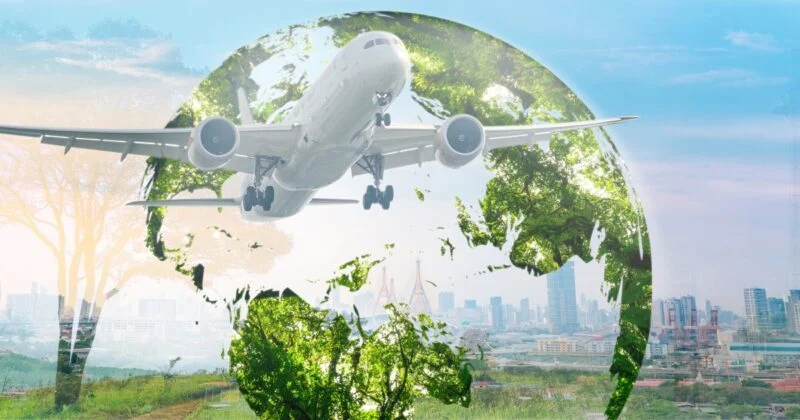SYLLABUS
GS-3: Infrastructure: Energy.
Context: Indian Oil Corporation (IOC) expects to start producing sustainable aviation fuel (SAF) on a commercial scale at its Panipat refinery by December 2025.
More on the News
• IOC became the first company in India to receive International Sustainability and Carbon Certification (ISCC) CORSIA certification for SAF production at its Panipat refinery.
• ISCC CORSIA is a certification system ensuring compliance with the Carbon Offsetting and Reduction Scheme for International Aviation (CORSIA) criteria for SAF.
• Annual production capacity at the refinery will be 35,000 tonnes of SAF from used cooking oil (UCO).
• This capacity will be sufficient to meet India’s 1% SAF blending requirement for international flights by 2027.
• Feedstock for the production will mainly come from large hotel chains, restaurants and snack majors.
• ISCC CORSIA Certification is a prerequisite for commercial SAF production and sets a benchmark for other domestic refiners.
About ICAO
• HQ: Montreal, Canada.
• The International Civil Aviation Organization (ICAO) is a UN agency set up in 1944 to ensure safe and efficient air transport worldwide.
• It sets global rules and standards for air navigation, communication, and airport operations.
• It also deals with issues like air traffic management, aviation security, and environmental protection.
CORSIA Mandates
• It is a global scheme launched by ICAO to control CO2 emissions from international aviation.
• Its goal is to keep net emissions at 2020 levels using carbon offsetting, carbon credits and sustainable aviation fuel.
• CORSIA applies to international flights and requires airlines worldwide to offset carbon emission growth beyond 2020 levels.
• It applies only to international flights operating from one country to another.
• Blending jet fuel with SAF is a key strategy for airlines to meet emission reduction requirements.
• 2027 marks the start of the mandatory phase of CORSIA for adoption of SAF globally.
• India will also comply with the mandatory CORSIA phase from 2027 onwards.
Sustainable aviation fuel (SAF)
• SAF is an alternative fuel made from non-petroleum and sustainable feedstocks that reduces emissions from air transportation.
• Its chemical composition will be much more similar to the conventional Aviation Turbine Fuel (ATF).
• SAF can be blended at different levels with limits between 10% and 50%, depending on the feedstock and how the fuel is produced.
• SAF can be derived from a range of materials, including:
- Oils and fats such as Used Cooking Oil (UCO), oil-rich seeds from plants, algae oils, animal fats,
- Municipal Solid Waste (MSW)
- Agricultural and forestry residues such as wood waste, sugarcane bagasse, corn stover, husks and straw, sugars and starches
Key Benefits of SAF
• SAF alone is likely to account for over 60 per cent of the global aviation industry’s decarbonisation efforts.
• Renewable hydrocarbon biofuels offer many benefits, including:
- Engine and infrastructure compatibility—SAF blended with conventional Jet A can be used in existing aircraft and infrastructure.
- Fewer emissions—Compared with conventional jet fuel, 100% SAF has the potential to reduce greenhouse gas emissions by up to 94% depending on feedstock and technology pathway.
- More flexibility—SAF is a replacement for conventional jet fuel, allowing for multiple products from various feedstocks and production technologies.
India’s SAF Blending Roadmap
• The National Biofuel Coordination Committee (NBCC) has set indicative blending targets:
- 1% blending in 2027 (international flights).
- 2% blending in 2028 (international flights).
• SAF blending for domestic flights may be mandated later, after 2027.
Challenges for SAF
• High production cost: SAF currently costs around 3 times more than regular jet fuel.
• Opposition from airlines over potential fuel cost escalation.
• Mandates for domestic flights are being delayed to 2027 or later due to cost concerns.

https://www.iscc-system.org/certification/iscc-certification-schemes/iscc-corsia

